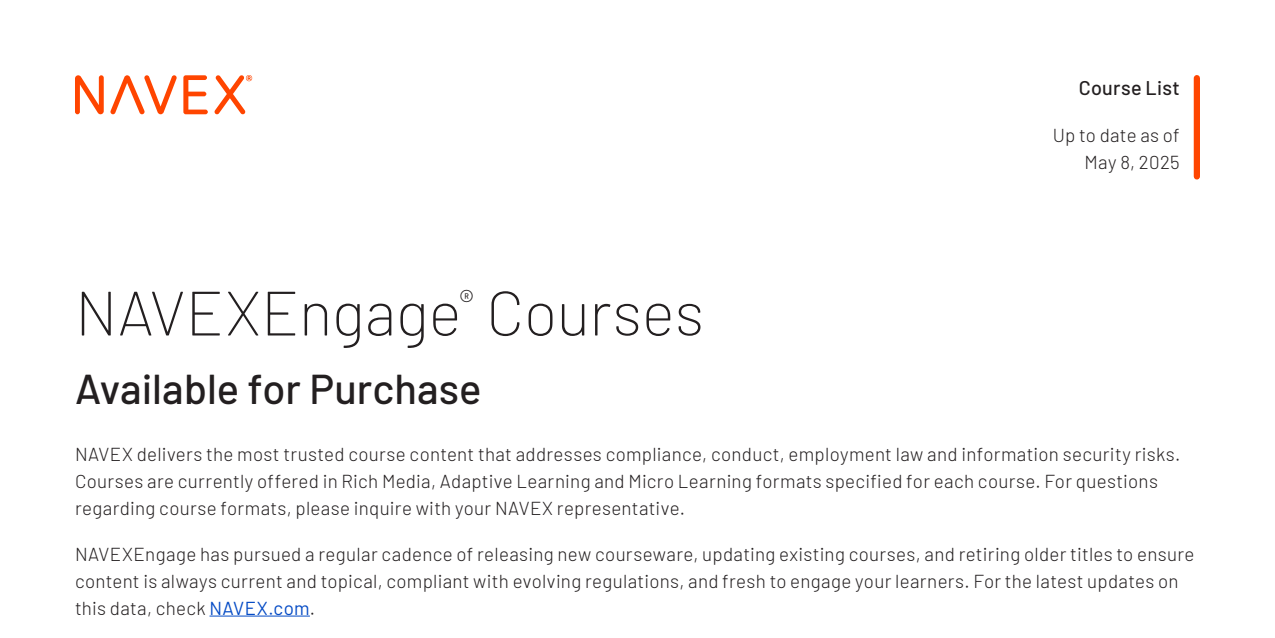
Provide your people with culturally relevant workplace harassment training
A culture where your employees can thrive is central to your success and reputation – so training on how to identify, prevent and report harassment is a huge part of protecting your business.
Our 11th edition Workplace Harassment training course is the industry-leading training solution on preventing workplace harassment for both employees and managers. Aligned with current United States legislation, this course takes on workplace harassment and how to combat it with engaging content, including self-customization options to help you accurately represent how your organization operates.
Our Workplace Harassment course covers these topics and more:
- Harassment terminology
- Sexual harassment
- Prevention and response
- Gender identity, gender expression and sexual orientation (optional)
- Digital harassment
- Diversity, equity and inclusion (optional)
- Discrimination
- Power differentials













